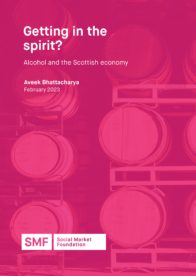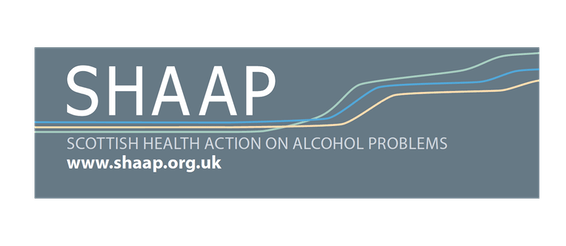The Scottish economy’s global reputation for producing alcohol has come with historically high levels of drinking and harm. The Scottish Government is currently consulting on a range of regulations on alcohol marketing. Analysing the relationship between alcohol and the Scottish economy, we find that such regulation is unlikely to have much of an effect on the Scottish economy, since so much of Scottish alcohol production – most notably whisky – is sold abroad.
Key points:
- The production and sale of alcohol, and associated supply chains account for 4.9% (£8.1bn) of the Scottish economy, around 60% of which comes from whisky exports
- Alcohol’s share of employment (2.4%) is half its share of GDP because whisky production is not very labour-intensive
- The whisky industry represents 15% of international exports, and 99% of scotch production for export. Scots themselves drink considerably more wine, beer and vodka than they do whisky.
- Most of the 60,000 Scottish jobs related to alcohol, however, are in the domestic market: around half are in pubs, bars and restaurants
- These are some of the lowest paying jobs in the economy: the average hourly wage is £8.46
- The overall effect of lower alcohol consumption on the economy is ambiguous: lost alcohol sales are offset by increased sales in other sectors that gain from diverted demand, and the benefits of a healthier, more productive workforce.
- Moreover, the societal costs of alcohol go far beyond the £1.2 billion estimated economic cost – including the £ value put on lost life, they are comparable to alcohol’s contribution to GDP – amounting to between £5-10 billion
In essence, further measures to reduce Scottish alcohol consumption are likely to have only modest effect on the economy – what matters more is demand for Scottish products in other countries.


